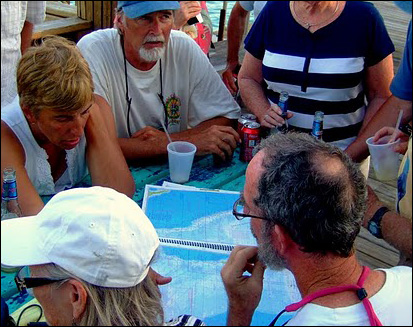
When we do our Women and Cruising seminars, the most unasked questions in the room are about fears.
Even in the companionable community of other cruising women, few people want to admit that they are afraid. And so concerns remain unasked and unaddressed, lurking behind less threatening topics like communications back home, finances, or provisioning.
A while back, we did our first online Women and Cruising webinar* for SevenSeasU.com the online cruising university organized by Seven Seas Cruising Association. While Kathy Parsons, Pam Wall and I addressed a question list of typical topics submitted by the attendees, over in the attendee chat box, perhaps enabled by the anonymity of the Internet classroom, someone typed, “Is anyone else afraid?” While we continued to talk about…what was it?…doing laundry, perhaps?…we watched as instant chats began flying back and forth — a flood of pent-up anxiety released.
We women have particularly capable imaginations.
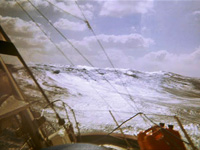 |
| Fear of storms |
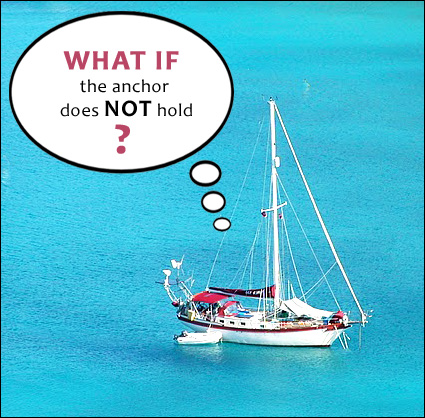 |
| Fear of disasters |
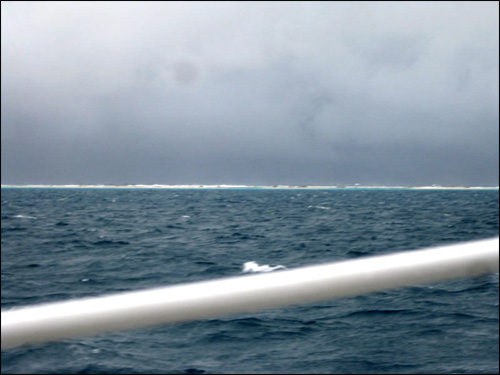 |
| Fear of dragging anchor |
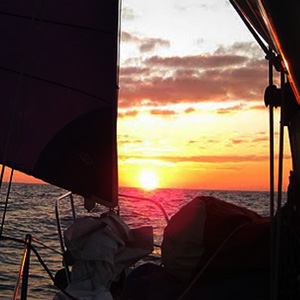 |
| Fear of the dark |
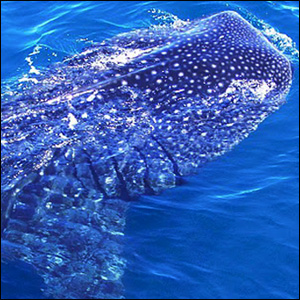 |
| Fear of sea monsters |
Whether we are newbies to cruising with relatively little real information or multi-year experienced sailors with many sea miles under our belts, we ladies typically spend a lot of time fretting over possible scenarios. This is not entirely a negative attribute, at least not when the anxieties are remotely realistic, because when we fret, we plan. In other words, as we conceive disasters small or large, we develop counter scenarios for dealing with them.
But when fears are allowed to get a grip on us, when we are pushed too far too fast (for our pace, whatever that pace may be), or if we let fears piggyback one on top of the other, then we run the serious risk of undermining our dreams. We have all seen boats stalled out in some marina or hanging about indefinitely in easy anchorages. Either they keep procrastinating that first big step out onto the ocean, or they scared themselves silly taking too big a bite on their first effort.
Obviously how much we know about our area of concern affects the way we worry about it. If we are newbies with little background knowledge, our scenarios can become fantastic, the way sailors of old worried about monsters of the deep and vengeful gods. In other words, a huge amount of angst can be squandered on something that is very, very unlikely to happen.
But the more we know, the more the parameters of what we worry about narrow down to real and possible issues.
Sailing in general and cruising in particular certainly expose us to situations where some anxiety is not inappropriate: navigating in areas of tricky reefs, sailing at night in areas with boat traffic, coping with squalls at anchor or rough seas and big winds underway. Controlled anxiety motivates us to stay alert, and should a situation occur, the scenarios we have run through in our “worrying” — and the preparations that worrying has motivated us to make — are there and ready to be implemented. Once we get through the scary experience, we look back on it and congratulate ourselves on coping and realize that next time it won’t be quite so worrisome. In such a way we build our confidence bit by bit.
Another complication on board is that men and women often deal with anxieties and fears in different manners, chief among which is that women like to talk through worries and men often don’t.
Let’s take a very simple example. A relatively new sailor is taken out sailing by her boyfriend who hopes to convince her to go cruising. If winds are 12 kts or less, he’ll put up all sail and she’ll likely have a pleasant ride. But if winds increase to 18 kts and he doesn’t reef, the boat may heel way over and waves may splash aboard. If she is adventurous, she may love this, but if she has reservations, she may be fretting about the boat going right over. If the wind kicks up further, she’ll be fretting about things breaking.
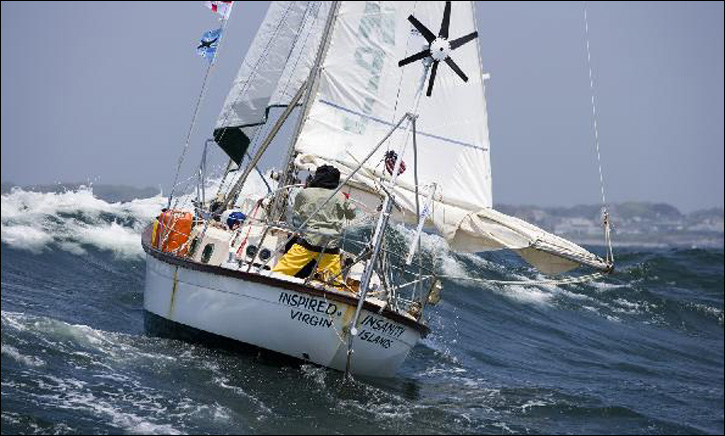
What else is going on? While her knuckles are going white, the boyfriend, especially if he is a racing sailor, may be having a grand old time, oblivious to her discomfort.
Or perhaps he, too, feels that things are getting overpowered, but, not wanting her to worry, acts as if everything is under control, that this is normal.
If she voices her worries, the racer’s response might be a dismissive laugh, while the more sensitive guy might issue a band-aid comment like, “Don’t worry about it. Everything is okay.”
Now, I ask you, why should she believe him? Sure, he may be seeking to reassure, but he is doing so by dismissing the validity of her worries.
Instead, why not take a moment to explain the interrelationship of the keel and the sail. Better yet, why not, the moment he has a clue she is uncomfortable, reef the sail and accomplish two things: diminishing her tension and teaching her about the comforting physics of reducing sail. The two steps together demonstrate that the situation is under control and that he cares.
Every individual’s fears will be unique to the situation — situation being boat, environment, and relationship (or solitude if single-handing). But there are commonalities.
Some fears are very specific, very imaginable, like sinking or dismasting, sailing through bad weather, having a partner fall overboard, hitting something in the dark, having a health issue at sea to deal with, or even dragging anchor onto a reef while asleep.
Others are more abstract: how will my partner and I get on 24/7 in such a small space? Or how will I deal with the solitude and having to doing any or all repairs if I dare to sail solo? How will I manage in a new place where I don’t know the language, customs, and proprieties? How will I face starting all over making new friends and learning my way around every time we move the boat on to a new port or country!
Essentially what we all — women and men — worry about most is how we will cope with unknown circumstances, but letting fears stall your plans is no answer.
Instead, learn all you can, and get out there where you will learn more by doing. Push yourself to take each next step, but take care to pace yourself; don’t bite off more than you’re ready to chew.
Pam Wall has a great saying that she shares with all our seminar attendees. “All the things you worry about now most likely won’t happen, and the things that do happen, you’ll deal with.”
In response to the anxieties revealed that night in the webinar* chat box, we are mounting a new feature collection on www.womenandcruising.com called “Fighting Fears.” In it, ten (so far!) cruising women share the things that shiver their timbers as well as what steps they’ve taken to manage them. This will become one of our ongoing topics, so if you have any bottled-up fears you need to get out in the open, the womenandcruising.com community is here to listen.
* (Watch SevenSeasU.com or Women and Cruising for the dates of our next webinars.)
Photos: Thanks to Donna Lange; Kathy Parsons, HALE KAI; Sherry McCampbell, SOGGY PAWS; Teresa Carey, DAPHNE; Meri Faulkner, HOTSPUR.
This article was published in the September 2011 issue of Latitudes and Attitudes.
